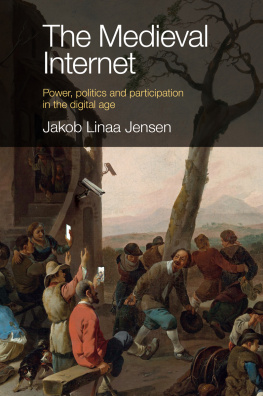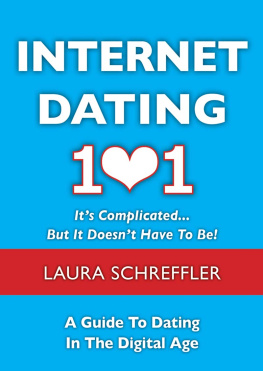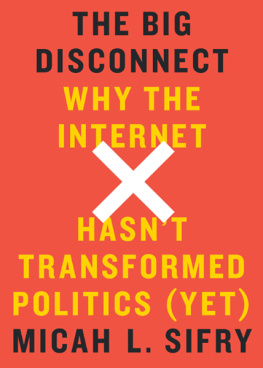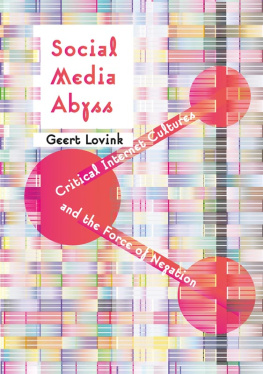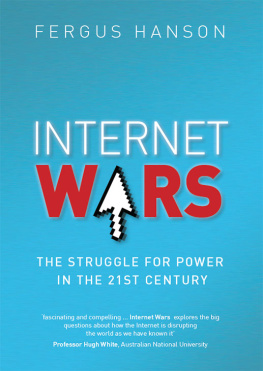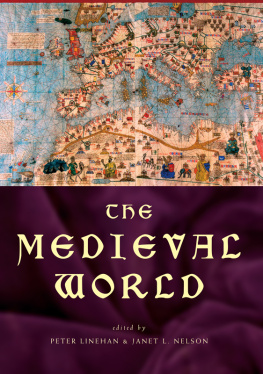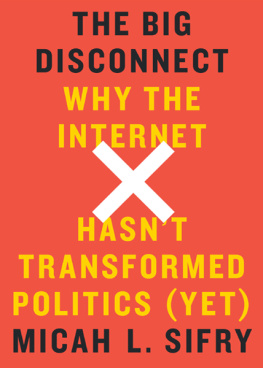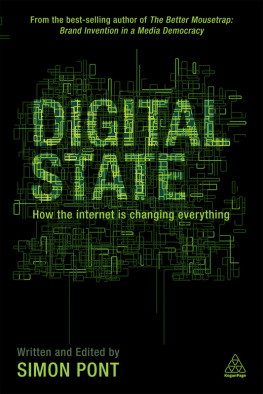Praise for The Medieval Internet
Jakob Linaa Jensen provides a timely reminder that theres nothing like a detour through history to dispel the facile promise that the Internet will empower the people and revitalize democracy. The Medieval Internet is a sweeping and provocative account of the affinities between our datafied, post-industrial era and the brutality of feudal-era exploitation. However, his nuanced approach to the Medieval Era also unearths resources for hope -- but not without a struggle. This is a fascinating and invaluable book that sheds new light on our current predicament.
Mark Andrejevic,
Monash University
This most important book concerns nothing less than whether or not our best norms and practices of democracy, liberal humanism, and rights of individual freedom and privacy can survive in the face of authoritarian threats. These are not just in the obvious forms of political repression and physical violence; as Jakob Linaa Jensen demonstrates in several key ways, the threats derive even more centrally from our own ostensibly free complicity with the tech giants and platform economies that render us ever more into digitized versions of medieval peasants, subject to the all but absolute control of multiple hierarchies.
While drawing aptly on the insights and wisdom of others, the book carves out its own distinctive approach one that leads to a wonderful array of important and compelling insights. Anticipating the current tech lash (i.e., our increasing recognition of the many profoundly negative aspects of our entanglements in social media, the platform ecologies of Apple, Google, Microsoft, Facebook, et al.) by over a decade, Jensen compellingly demonstrates how these engagements constitute a Medieval feudalism. This is not simply a striking and provocative turn of phrase. It accurately describes specific analogies Jensen convincingly demonstrates between Medieval power structures, norms, and practices, and those established through contemporary regimes of algorithms, Big Data, and largely unregulated platform and surveillance capitalism. These regimes further include specific Medieval-like features of our digital lifeworlds such as total surveillance (the Internet omnopticon) and online communities complete with digital pillories, public shaming, and online witch hunts.
Jensen draws from his extensive scholarship and backgrounds in political science, journalism, and media studies to bring together much of the best of contemporary and relevant research and scholarship in political economy and theory, philosophy, media and communication studies into a comprehensive and coherent series of analyses. He starts by doing justice to the complexities of medieval life both with regard to its many repressive elements as well as to its usually less-heralded cultural flourishing and contributions to what we otherwise mistakenly assume are uniquely modern inventions, institutions, norms, and so on. Jensen then demonstrates in fine-grained detail the close analogies between contemporary digital lives and the Medieval world specifically in terms of power hierarchies and economic regimes, norms, notions of community, lack of privacy and surveillance. At the same time, Jensen thereby breaks important new ground as he makes still more articulate and clear what he characterizes as the break, invisible but vast, with modernity and liberal humanism and democracy and the Medieval feudalism carefully portrayed here.
In my view, the book thus adds essential substance to and dramatically raises the stakes in current debates and concerns swirling around the threats to democracy and privacy presented by surveillance capitalism, algorithms, AI, Big Data, surveillance via social media, and so on debates that become increasingly urgent as these technologies are deployed and diffused ever more fully in our lives through the emerging Internet of Things, for example. Jensens analogies between these contemporary regimes of power and the Middle Ages makes the threats against modern institutions and norms still clearer and sharper.
Most importantly, these analyses do not foreclose all hope. Rather, Jensens analyses also foreground the many conditions and possibilities of modern democracy, including discontent and conflicts as a fundamental condition. His rich surveys of how internet-facilitated communication can still foster possibilities of dissent and resistance to power are crucial insights and inspiration into how human freedoms, rights, and democracy may survive.
Scholars and researchers in the multiple disciplines intersected here and who are concerned as we all must be with sustaining and enhancing democratic rights, norms, and processes against these ever increasing arrays of threats will profit enormously from this book. At the same time, it is written in a clear and accessible style that makes it appropriate and compelling as a textbook. Indeed, anyone interested in better understanding the complex problems of protecting basic citizens rights and freedoms in democratic regimes vis--vis the ever growing temptations to trade these away in the name of consumerism and convenience will find it an invaluable guide and overview.
Charles M. Ess,
Professor in Media Studies, Department of Media and Communication,
University of Oslo
The Medieval Internet:
Power, Politics and Participation
in the Digital Age
JAKOB LINAA JENSEN
Danish School of Media and Journalism, Denmark

United Kingdom North America Japan India Malaysia China
Emerald Publishing Limited
Howard House, Wagon Lane, Bingley BD16 1WA, UK
First edition 2020
2020 Jakob Linaa Jensen. Published under exclusive licence by Emerald Publishing Limited.
Reprints and permissions service
Contact:
No part of this book may be reproduced, stored in a retrieval system, transmitted in any form or by any means electronic, mechanical, photocopying, recording or otherwise without either the prior written permission of the publisher or a licence permitting restricted copying issued in the UK by The Copyright Licensing Agency and in the USA by The Copyright Clearance Center. Any opinions expressed in the chapters are those of the authors. Whilst Emerald makes every effort to ensure the quality and accuracy of its content, Emerald makes no representation implied or otherwise, as to the chapters suitability and application and disclaims any warranties, express or implied, to their use.
British Library Cataloguing in Publication Data
A catalogue record for this book is available from the British Library
ISBN: 978-1-83909-413-2 (Print)
ISBN: 978-1-83909-412-5 (Online)
ISBN: 978-1-83909-414-9 (Epub)

Contents
About the Author
Jakob Linaa Jensen, Ph.D., M.A. in Politics, is a Research Director of Social Media at the Danish School of Media and Journalism. Before that he was an Associate Professor of Media Studies at Aarhus University. He has researched social media for 15 years and headed an EU COST task force on social media methods. He has published five monographs, three edited volumes and more than 30 international journal articles. His main research focus is on political and democratic uses of social media and on testing and developing new methods for social media research. His research interests also include political communication, the public sphere, social media, Internet politics and sociology of the Internet and cognitive affordances of new media.

